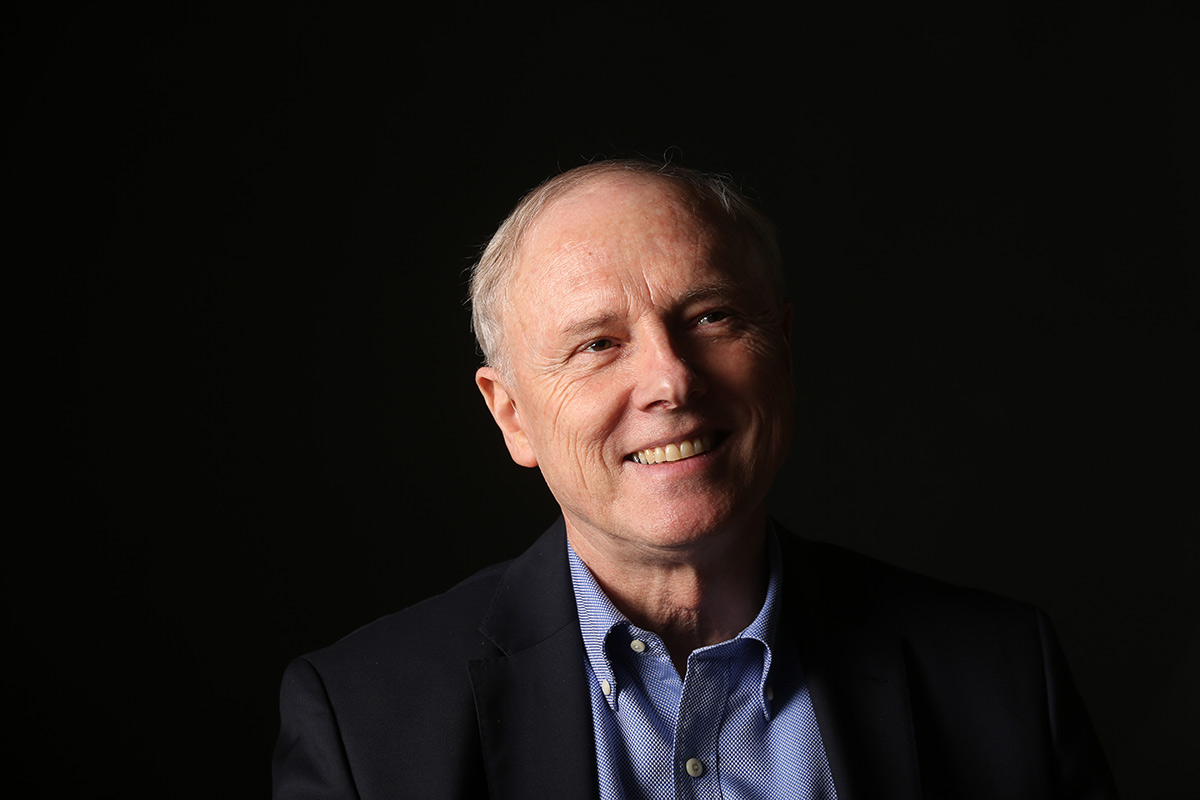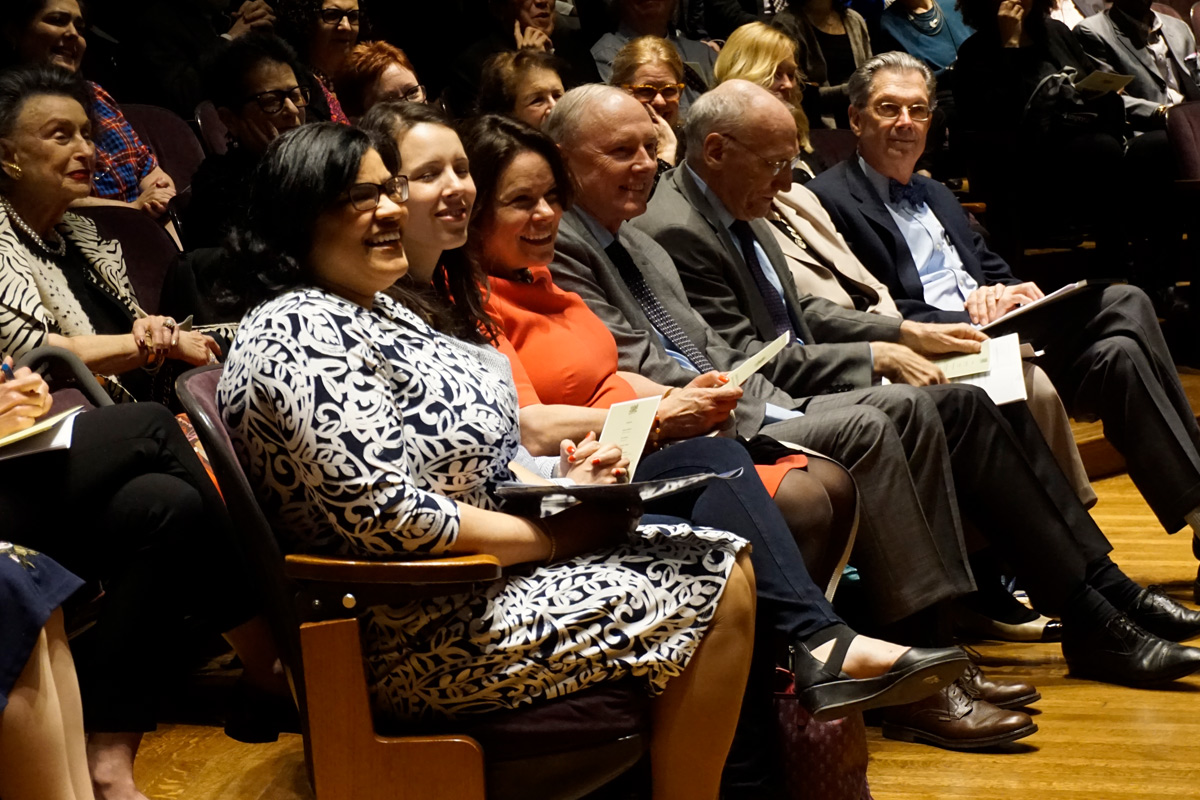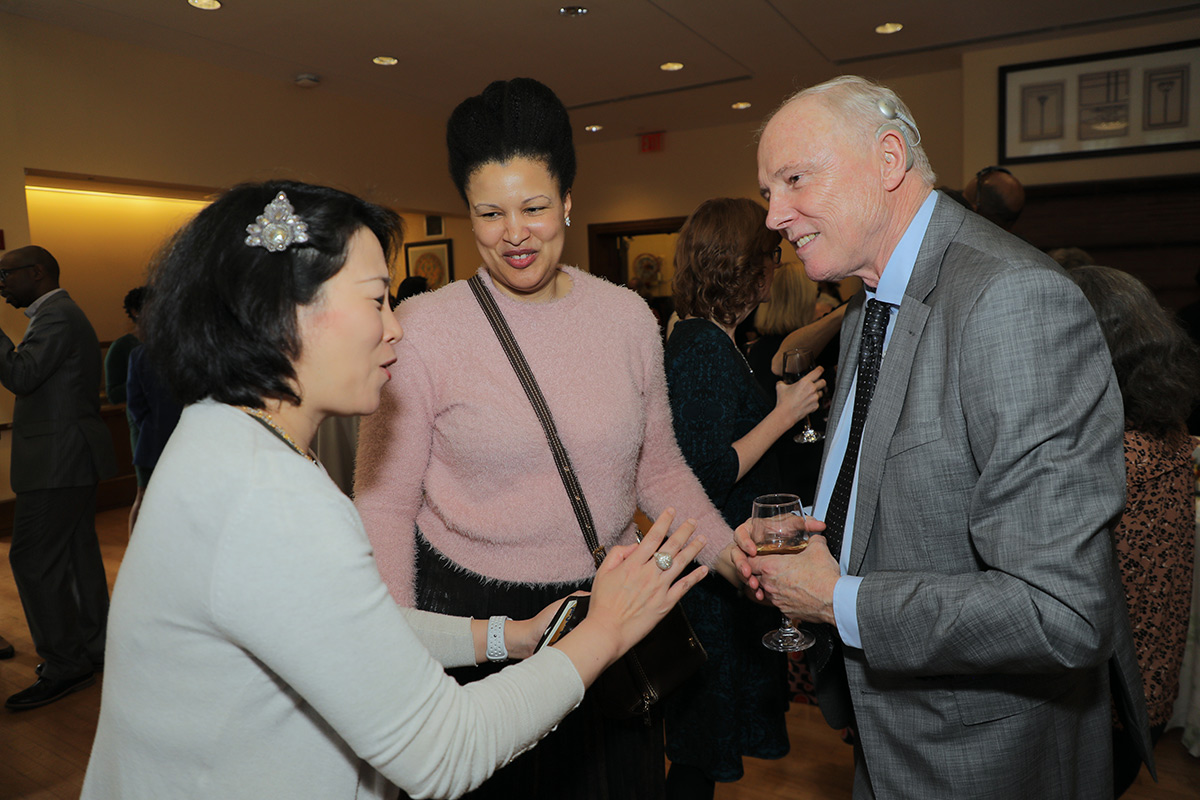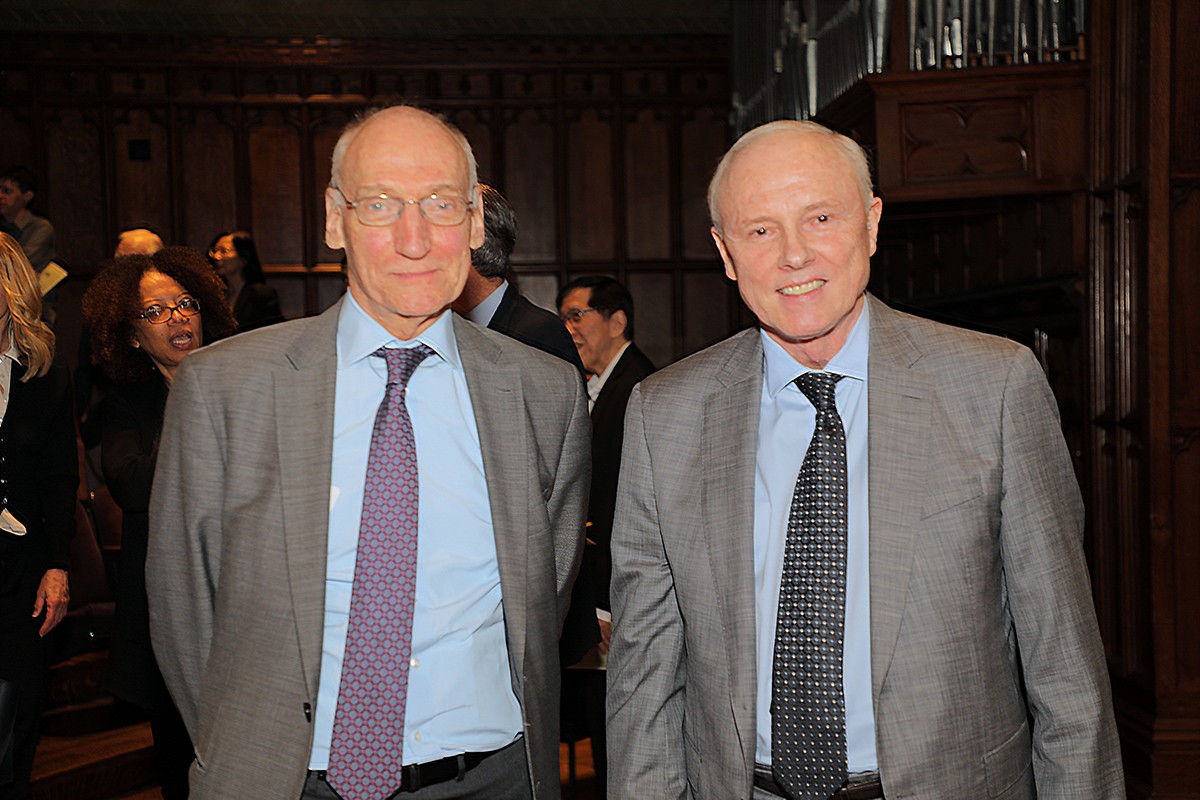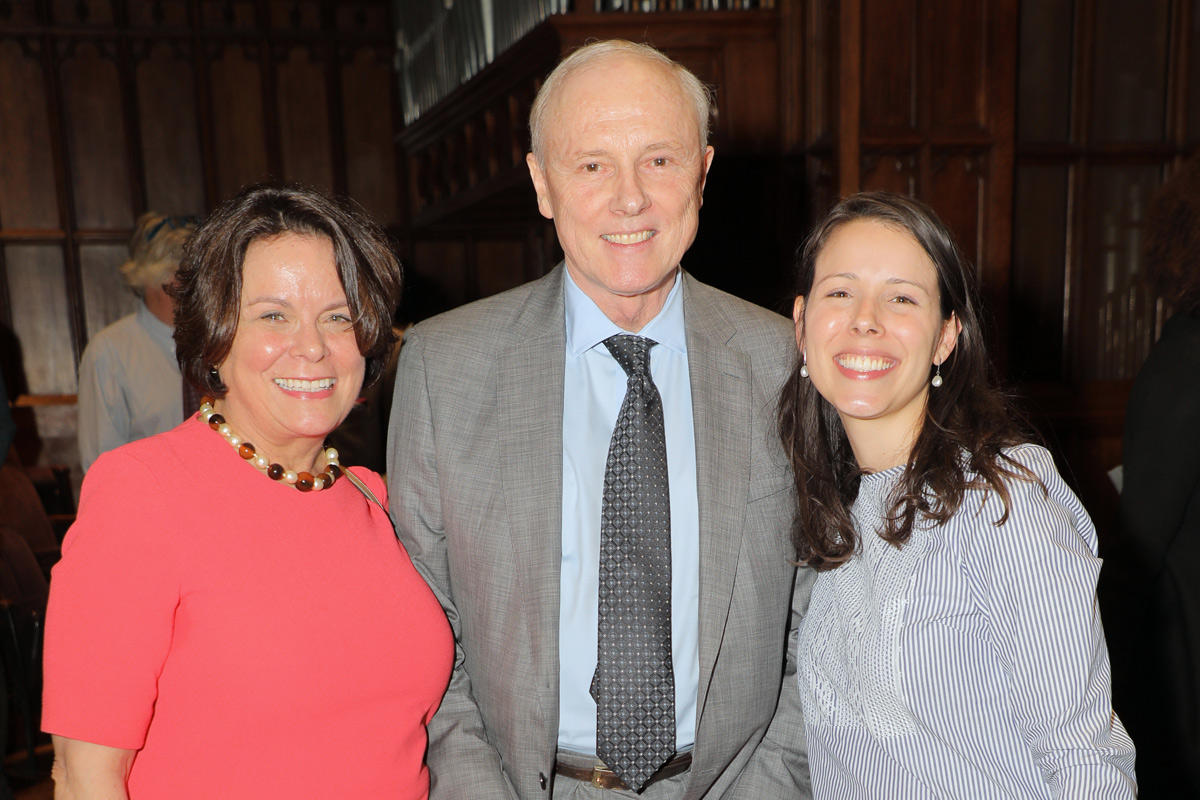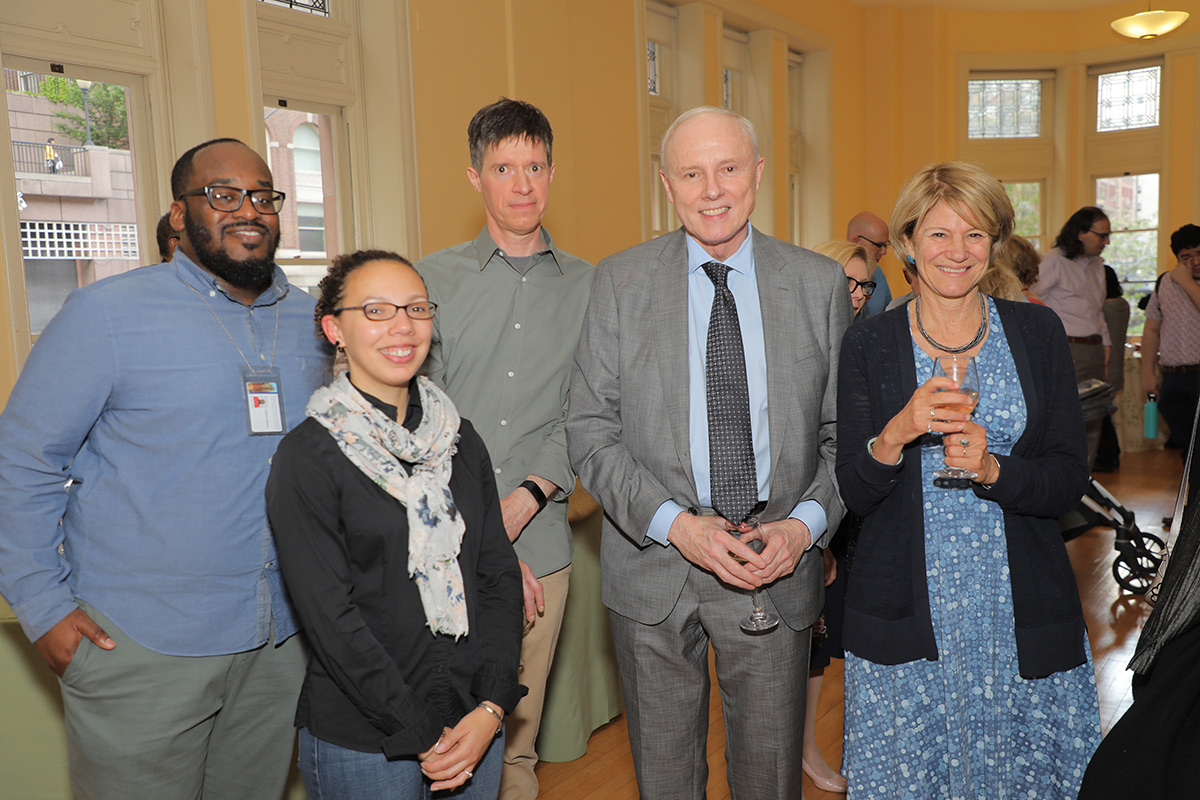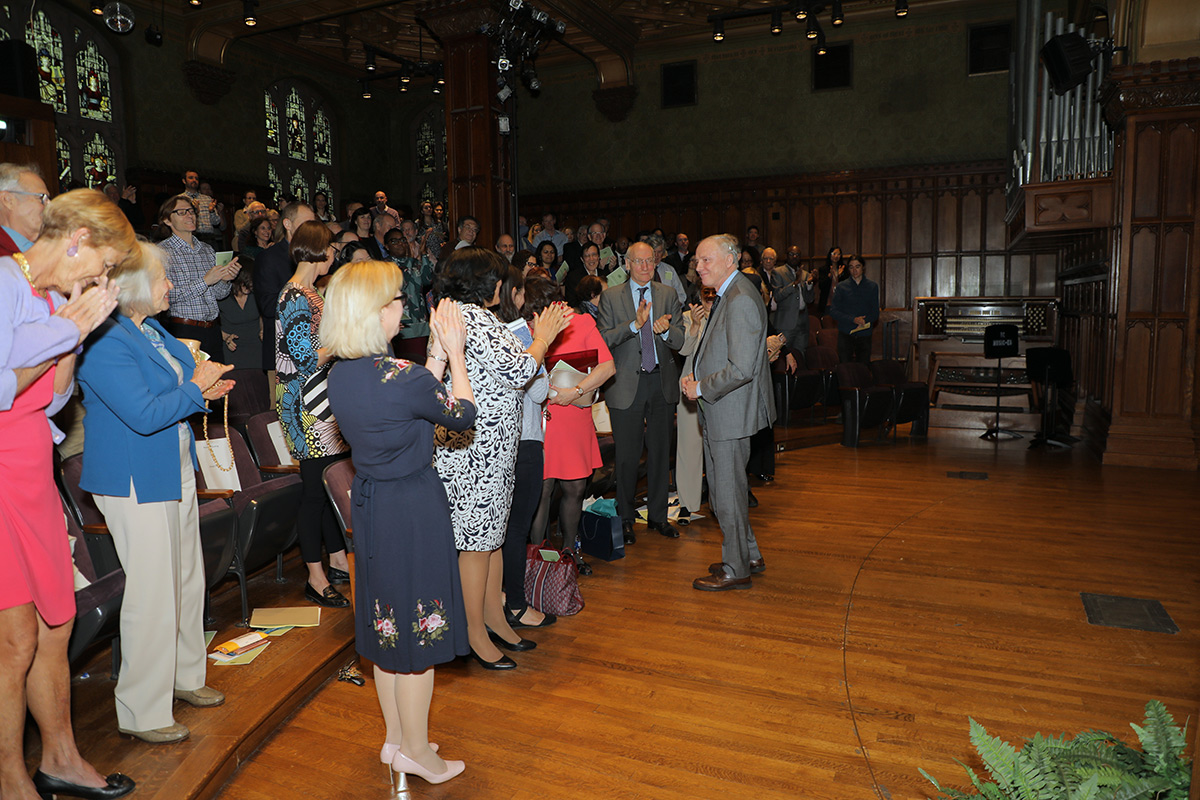If there are two watchwords that summarize Tom James’ 12-year tenure as TC’s Provost, Dean and Vice President for Academic Affairs, they are “innovation” and “civility.”
For James, who will step down at the end of June but remain on as a professor and co-director (with Ansley Erickson) of TC’s Center on History and Education, each of those ideals is a both a necessary condition for, and a logical outgrowth of, the other. “Change comes from everywhere within an organization,” he says. “The great challenge in promoting innovation is to create a spirit of cooperation, civility and mutual respect so that everyone feels they have the freedom to think, speak and act.”
[James recently was honored with a special proclamation of gratitude from the Teachers College Alumni Council at the College’s 2019 Academic Festival. Watch a video clip and read the proclamation.]
A distinguished education historian who taught at Brown University and served as Dean of the University of North Carolina’s School of Education and Vice Dean of New York University’s Steinhardt School of Education, James has focused on that challenge since arriving at TC in 2007. His first major act was to establish the TC Provost’s Investment Fund, which awards seed grants to projects that bring together TC faculty from across disciplines, address issues of major societal concern and add value to TC by adding informing new courses or programs, creating peer-reviewed publications or supporting student jobs. The Fund has backed hundreds of projects, many of which have gone on to make a major national or global impact – including efforts to understand and prevent teen suicide, support Latino education, improve young people’s financial literacy, develop new learning technologies and address the needs of refugees around the world.
The Provost’s Fund reflects James’ philosophy that “innovation must be invited rather than specified,” a lesson he learned at Brown when a vice president there ordered Wang computers for every faculty member, administrator and student, only to see them gather dust after Wang went belly up.
At the same time, James has spearheaded TC’s hiring of more than 70 new faculty members TC – scholars who, as he puts it, “are envisioning and actively shaping the future of their fields.” They have developed or added to the College’s strengths in fields that include education data analytics, Latino mental health, the history of education, mathematics education, speech pathology, neuroscience and education, movement sciences, health education counseling psychology, education technology, media literacy and more – and that work continues.
“I’m really pleased that President Bailey has signaled his desire to make research and research funding a major focus,” James says.
James also has helped faculty members – and faculty of color, in particular – take on new roles as department chairs, chaired professors, heads of TC centers and institutes, senior advisers and associate deans.
“One of the things I’m proudest of is that I’ve helped to make TC more welcoming and supportive for the growth of faculty of color,” he says. “I want very much for this to be a community where people can develop their leadership potential. I’ve seen during my career that the wrong cues, or the absence of the right ones, can make faculty of color uncomfortable. We still have work to do, but the fact that we could positively shape TC’s environment in this way really matters, not just for us, but for the whole fields of education, health and psychology.”
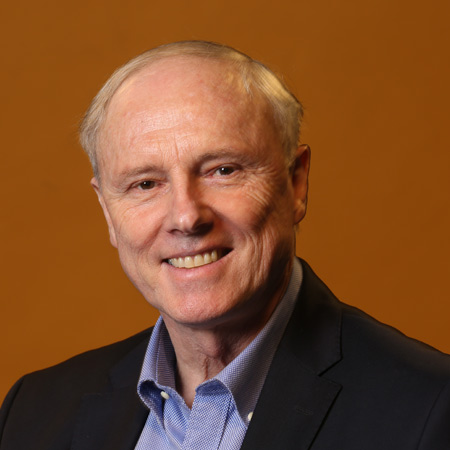
Public education is one of our commons as a democratic society. It’s the thing that makes possible the liberties and responsibilities that we have.
James’ own educational role models include his father, who attended school in a rural one-room schoolhouse, became a principal and superintendent, and later Founding President of the Spencer Foundation and former Dean of the School of Education at Stanford University; the education historians David Tyack (the younger James’ mentor at Stanford) and Lawrence A. Cremin, the late TC President, who was a family friend; and John W. Gardner, the founder of Common Cause, where James worked as a young man just out of college. Reaching further back, his heroes include John Dewey (he has written eloquently of his boyhood attending the Laboratory School, founded by Dewey, at the University of Chicago) and Kurt Hahn, the educator and founder of Outward Bound (James received the organization’s Kurt Hahn Award for Lifetime Achievement in 2016). So it not surprising that, at a moment when segregation is increasing in the nation’s schools and class and political divides are widening, James is keenly mindful of TC’s example to the world on other issues as well.
“Our work is to continue emphasizing the importance of education in human development so that we can be the kind of society we want to be,” he says. “What’s happening right now in this country reminds me of the philosopher Garrett Hardin's essay on ‘The Tragedy of the Commons’ [building on a pamphlet written in 1833 by the British economist William Forster Lloyd], about the privatizing of pasture land in the British Isles. When you divide up the land that everyone is using and just take your own piece of it, you no longer have the life-giving community that supports everyone and makes it possible for all to flourish. And public education is one of our commons as a democratic society. It’s the thing that makes possible the liberties and responsibilities that we have.”
For James, TC’s work in safeguarding the education commons begins within its own walls.
“I see TC as a learning organization, for ourselves as well as for the students we teach, where we recognize that people have capabilities and that they’re constantly adapting and changing,” he says. “My hope is that people can always grow in their jobs here, especially our wonderful staff – our security guards and food services workers and maintenance teams – and that their jobs can become gateways for professional growth. And that’s not just an HR function. So I’ve tried to embody that spirit, and I’m proud of the growth I’ve seen in our community.”
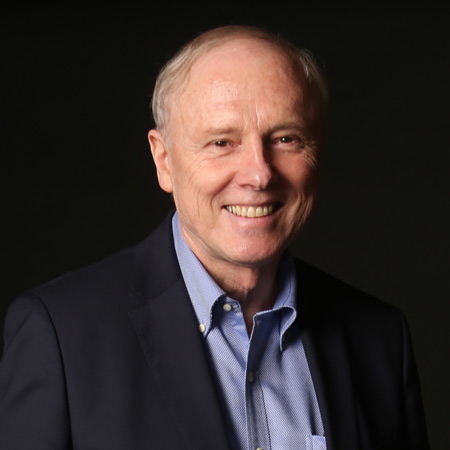
I see TC as a learning organization, for ourselves as well as for the students we teach, where we recognize that people have capabilities and that they’re constantly adapting and changing.
James credits TC with aiding his own growth as well.
“One thing I’ve gotten better at is managing my own metabolism, in the sense of being able to remain calm and be a good listener even when there are many other things happening simultaneously,” he says. “It’s so important in this role to not get bent out of shape or fatigued – and so one really important area of discipline for me has been to let myself sleep at night. It’s like saying a prayer – in a sense trusting yourself and trusting that the cosmos is going to care for you, so that you wake up with the resilience and energy to be fully present for people.”
James also feels he’s become better at “approaching, in a peaceful way, very dynamic situations and helping people try to find some kind of consensus.
“TC, like all academic institutions, has many strong characters and personalities – hard chargers who are pushing to do things in their lives and careers that are important to them. The challenge for an academic leader is developing comfort with that energy and not recoiling from it.”
There is a widespread agreement that James has more than met that challenge.
“Tom James has rendered outstanding service to Teachers College over the past 12 years,” TC President Thomas Bailey wrote in a recent message announcing James’ successor, Stephanie J. Rowley, who will assume the office in July. “Among his many achievements that have fostered more innovation and collaboration at the College, he has also served as a model of graciousness, decency and mutual respect. I personally am grateful to Tom for the guidance he has provided me during the first year of my presidency.”
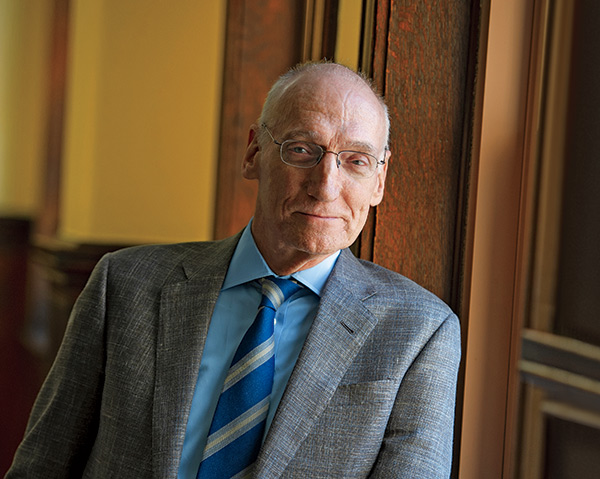
Among his many achievements that have fostered more innovation and collaboration at the College, he has also served as a model of graciousness, decency and mutual respect.
In a statement that was read aloud at a recent tribute to James held in TC’s Milbank Chapel, former President Susan Fuhrman wrote:
“No summary can do justice to what Tom James has meant to the College. Nor can I do justice to what he has meant to me. What everyone gathered here should know is that Tom was simply great to work with. He was strategic, thoughtful, and gracious to a fault – in good times and trying times alike. The college and I were blessed to have this capable and wonderful person as its provost, and I have one remaining wish: that Tom enjoys a well-earned sabbatical and receives as much credit and support for his future scholarship and faculty work as he gave so generously to all of us.”
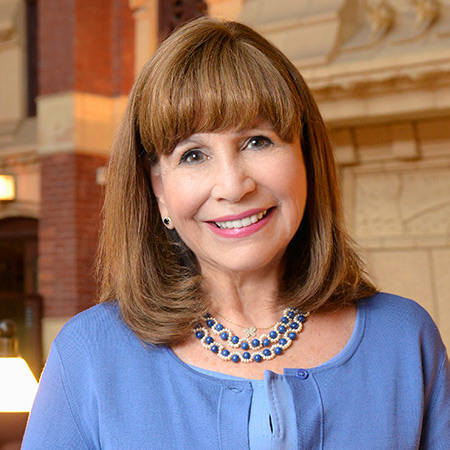
No summary can do justice to what Tom James has meant to the College. Nor can I do justice to what he has meant to me.
Suzanne M. Murphy, the College’s Vice President of Development & External Affairs, also spoke of James as a gracious collaborator and source of wise counsel.
“Tom and I have served together on the senior leadership team for many years, and on issues great and small, he has been steady, smart, non-reactive and unflappable,” says Suzanne Murphy, “He’s also been the perfect partner for our department. From the creation of the Laurie M. Tisch Center for Food, Education & Policy, within the Department of Nutrition, to laying the groundwork for the continuation at TC of Lawrence Cremin's work and ideas, to ensuring a continuing legacy for the Klingenstein Center for Independent School Leadership, to establishing our Dance Education Doctoral Program, he’s worked so beautifully with us on matching donors with faculty members and finding that sweet spot where the interests of the donor and the College converge.”
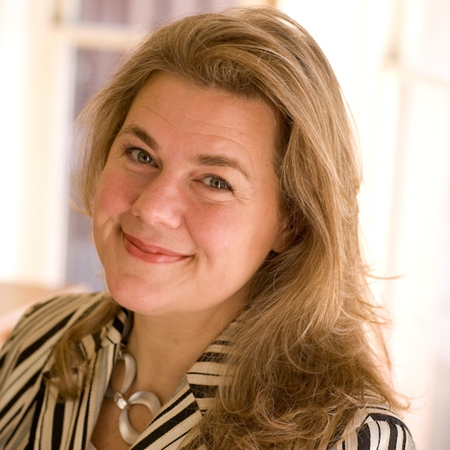
On issues great and small, he has been steady, smart, non-reactive and unflappable, he’s also been the perfect partner for our department.
And faculty weighed in as well.
“Back when I was teaching in high school, we’d say about a good leader, ‘She’s a teacher’s principal’ – well, Tom is a professor’s Provost and Dean of Faculty,” says David Hansen, TC’s John L & Sue Ann Weinberg Professor in Historical & Philosophical Foundations of Education. “He deeply understands the arc of an academic life and career.”
In part, Hansen says, that’s because James is a first-rate scholar in his own right. “His work on this country’s internment of Japanese-Americans during World War II is a major contribution to the history of American education. He’s been a big part of opening that field up to the recognition of different voices and experiences, and if I know him, he’ll be making more contributions in that vein.
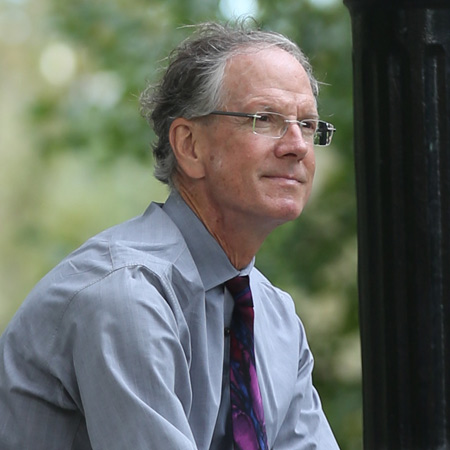
Tom is a professor’s Provost and Dean of Faculty. He deeply understands the arc of an academic life and career.
But James also possesses “a genuine sense of stewardship for the things that are worthy of care in the higher education experience – including quality teaching. Some years ago he awarded a Provost’s grant to Hansen and several other colleagues to create a “course staff model,” in which doctoral students fully co-teach with faculty, from conceiving syllabi to delivering lectures to conducting assessments.
“All of these students report that the experience has been marvelous for them and really prepared them for teaching in higher education – and Tom made that possible,” Hansen says.
And in remarks that she delivered at the recognition ceremony for James, Michelle Knight-Manuel, Professor of Education and Associate Dean, said: “Tom’s commitment to understanding and supporting faculty scholarship is unparalleled “Several assistant professors have told me after their third year review how much Tom knew about their scholarship and how he was able to support them in moving forward. A few years ago, [the noted education scholar] Gloria Ladson-Billings and I were having a conversation about life in the academy. She later shared how important is to be at a place where you have the freedom to do the work that you want to do. Thank you, Tom, for your commitment to supporting faculty in doing their important work and supporting their growth in service to TC, to varied professional fields, and to our multiple diverse communities in hopes of making this a better world.”
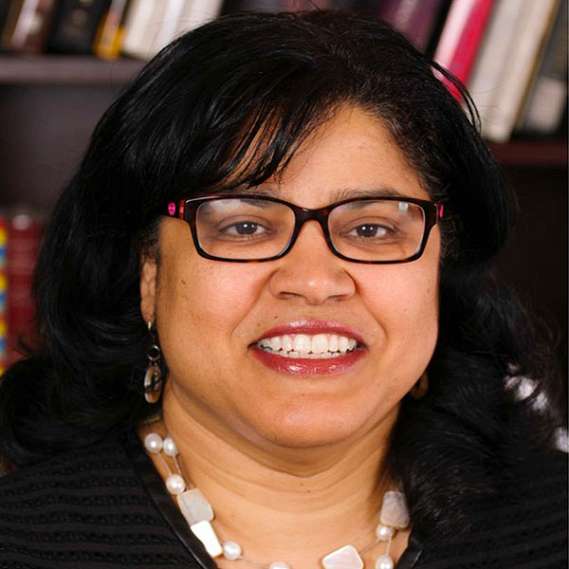
Thank you, Tom, for your commitment to supporting faculty in doing their important work and supporting their growth in service to TC, to varied professional fields, and to our multiple diverse communities in hopes of making this a better world.
James will be taking a sabbatical, during which he hopes to finish a book he’s working on. When he returns to TC as a professor, engaging in research, teaching and service, one of his projects will be to lead a seminar aiming to generate a sequel to Cremin’s book A History of Teachers College, which covered the first half of TC's nearly 130-year history.
More broadly, he’ll continue to fight what he ardently believes is the good fight.
“My role personally will be to continue to advocate for education for all. Education is a fundamental building block in democratic society. And I believe that our march toward universal access and educational rights is ultimately unstoppable, because that’s what this kind of society is all about.”
